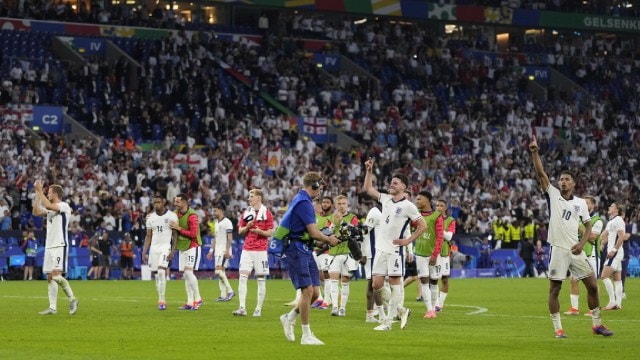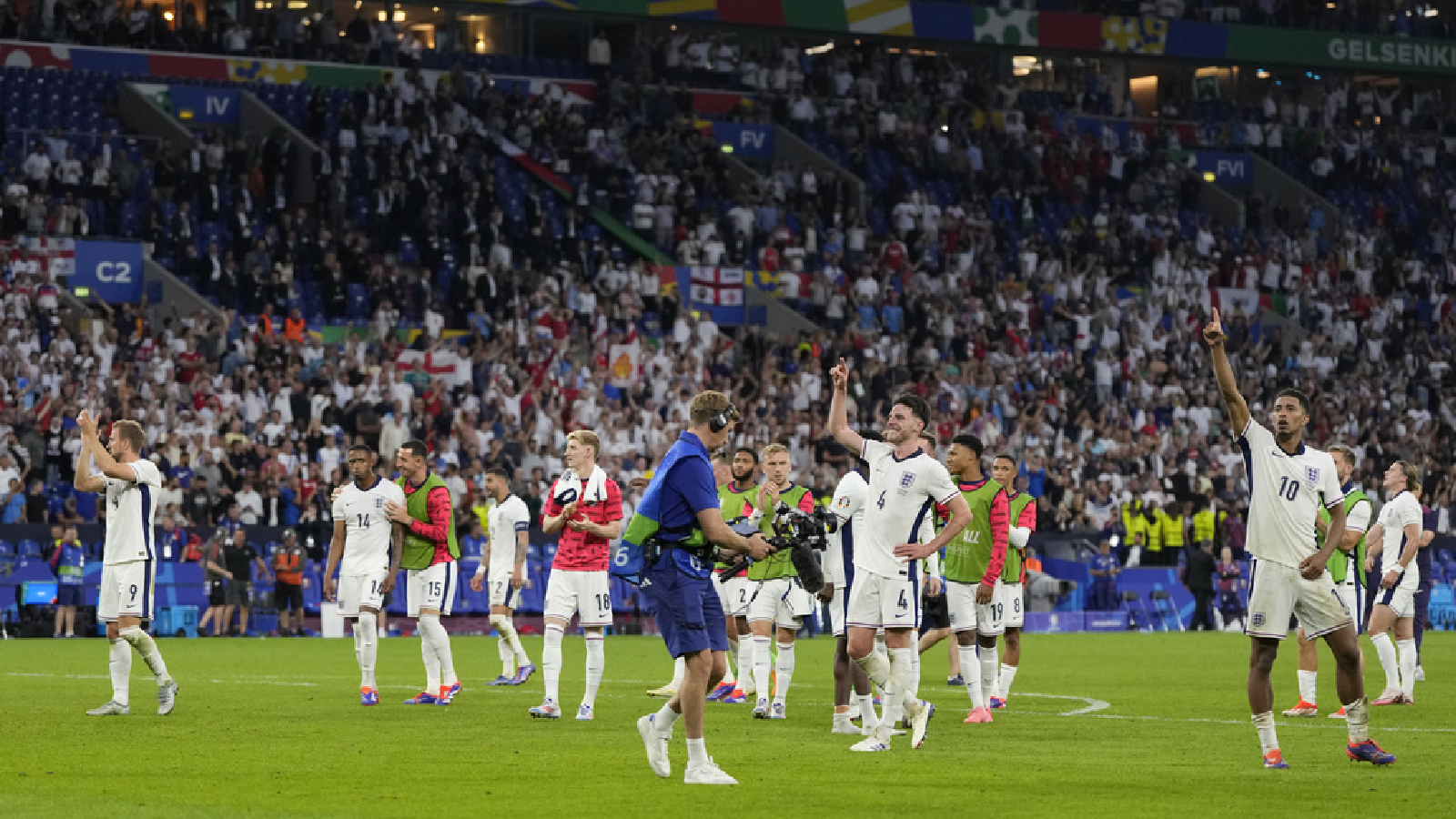
England were down and out. Ninety minutes had passed and five minutes of laborious injury time had gone by. Few expected Slovakia to put Gareth Southgate’s chosen few on the verge of a crushing yet deserved exit.
But just when the bell was about to toll, the question ‘who could’, was answered by ‘who else’.
Jude Bellingham has come up with four late goals for Real Madrid and two now for England – all of them being either equalisers or go-ahead goals, two of those winners coming in El Clasicos. On Sunday, the midfielder scored with an audacious bicycle kick to save England from an embarrassing exit. Harry Kane then spared them the blushes by scoring early in extra time to lead his team into the quarter-finals. But those goals don’t change the reality of England at Euro 2024.
For 95 minutes, they deserved to go out of the tournament. Statistics prove that an amalgamation of such talent has somehow combined to be one of the biggest disappointments at Euro 2024.
Before the tournament even began, Southgate admitted that his team – which included the La Liga Player of the Year, the Bundesliga top scorer and the English Premier League Player of the Year – was simply not at the fitness level needed to play a high-press game for the duration of a game. His statement is backed by England statistically being the worst pressing team in the European Championships.
Passes per defensive action (PPDA) is a statistic that measures the pressing intensity of a team during a match. While Austria and Germany take an average of under nine passes before making a defensive action (tackles, interceptions), England shockingly allow 28.7 passes on average before a foot or head comes in the way. Unsurprisingly, they are dead last in the tournament when it comes to pressing the ball.
The one positive statistic for England has been the control they have exerted in midfield. But inexplicably, even that metric points to a glaring issue for the Three Lions – their slowness in passing. It has been rare for England to find themselves with the ball and immediately pass it forward. They often veer towards keeping possession and a slower build-up rather than unleash runners like Bukayo Saka and Bellingham. In an era of transitional football, they have failed to fully utilise a squad that can play in that style. Both Spain and France take in around 30 passes before an attempt at goal materialises, according to TriggerThePress, a website that collects football data. For England, that number balloons to 61 passes before an attempt at goal.
Cup of woe
To sum up their woes, England don’t press high up the field well enough, choose to keep control with extra passes rather than take advantage of a team being out of position and trying to feed their runners. That control doesn’t lead to goals, as is obvious in their four goals in four games at these Euros.
To top it all off, nothing has pushed England towards mediocrity more than Gareth Southgate’s decision-making. His substitutions have baffled consistently across his reign as England manager – particularly his lack of reactive measures when England fall behind in a game. Bringing on striker Ivan Toney, with a minute of regulation time left; not playing an established left-winger against Slovakia’s 37-year-old right- back Peter Pekarik; not playing Cole Palmer over a clearly-struggling Saka. It has been a litany of poor calls and inertia over substitutions that have made calls for Southgate’s (the highest-paid manager at these Euros) sacking grow louder.
Bellingham’s audacity may have saved the ‘worst best’ team at this Euros from an early exit. But Switzerland, who are brightly coached and have excelled at this tournament, having knocked out the defending champions, loom ahead. Southgate narrowly avoided what could have been his last game as manager for his country, but the same question that followed England when they lost at the semi-final of the 2018 World Cup and the final of the 2021 Euros will be asked. Will Southgate stick with his control-based, possession-aplenty style that leads to a barrage of pressure? Or will he finally play a high-press, transitional game that matches the style most of these players are accustomed to with their clubs? Southgate will have to find answers soon or English conservatism is poised to suffer an exit at the hands of the Swiss.




